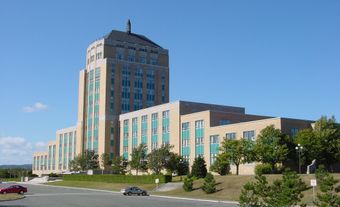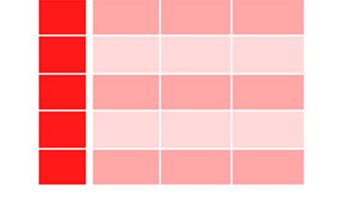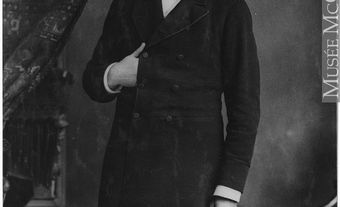Dwight Ball, pharmacist, businessman, premier of Newfoundland and Labrador 2015–20, leader of the Liberal Party of Newfoundland and Labrador 2013–20 (born 21 December 1957 in Deer Lake, NL). Ball became premier at a time of economic crisis. After several years of prosperity, slumping oil revenues required his government to bring in unpopular austerity measures to fight a burgeoning provincial debt. Ball retained the premiership in 2019, when his Liberal Party won a minority government. On 17 February 2020, Dwight Ball announced his intention to resign as premier of Newfoundland and Labrador. He remained in that position until 19 August 2020, when Andrew Furey was sworn in as premier. (See also Politics in Newfoundland and Labrador.)

Private Life and Career
Dwight Ball grew up in Deer Lake, Newfoundland, one of five children of William and Evelyn Ball. William worked in the forest industry and was active promoting the rights of loggers. Evelyn has said that political issues were always discussed in the family home, and that she knew early on that her sons would enter politics. (Dwight's brother Dean was elected mayor of Deer Lake in 2011).
At 17, Ball enrolled in the School of Pharmacy at Memorial University in St. John's, and upon graduation returned to Deer Lake to pursue a business career. He began by franchising the Deer Lake Pharmacy. He then grew his business by investing in and developing personal care homes, real estate, and venture capital projects.

Ball is active in community and professional work. He has served as president of the Canadian Pharmacists Association, president of the Deer Lake Chamber of Commerce, and chair of the fundraising committee for the 2006 Newfoundland and Labrador Winter Games in Humber Valley. He has also served on regional airport, hospital and food bank boards.
He and his wife, Sharon, have one daughter.
Provincial Politics
Dwight Ball spent a decade trying to secure a firm position in provincial politics. He failed in his first attempt to enter the House of Assembly, losing the Humber Valley seat by 289 votes in the 2003 general election. In a by-election in March 2007, he won the riding from the Progressive Conservatives (PCs) by only seven votes after a judicial recount. The victory was short-lived, however, and he was defeated by the PC candidate in the general election that October.
In 2011, Ball again won the Humber Valley seat, this time by only 68 votes.
Liberal Leader
Dwight Ball became interim leader of the Liberal Party and leader of the official opposition in January 2012, following Liberal leader Kevin Aylward's failure to win his seat in the 2011 election. The Newfoundland and Labrador Liberals were at their lowest ebb. For the first time in history, the party had come third in the popular vote, with 19.07 per cent versus the NDP’s 24.64 per cent and the Progressive Conservatives’ 56.09 per cent. The Liberals obtained official opposition status only by winning six seats to the NDP’s five, with 37 going to the PCs.
It was a difficult time for the Liberals. The party was dispirited and deeply in debt by 2013. But Liberal fortunes would quickly improve — thanks to a series of political miscalculations and the perceived arrogance of the PCs under Premier Kathy Dunderdale and her successor, Premier Paul Davis. The government introduced unpopular policies such as reducing access to information. It failed to deal seriously with a series of rolling electricity blackouts, and it presided over cost overruns at the Muskrat Falls hydro megaproject in Labrador.
In November 2013, as the PC’s problems were multiplying, Ball was formally elected Liberal leader, defeating four challengers in a preferential-voting contest.
2015 Election
By 2015, power had ebbed away from the PCs in the form of numerous by-election losses and defections from a once-mighty governing party. Dwight Ball's Liberals led opinion polls with as much as 74 per cent of support among those surveyed. Some commentators even speculated that the Liberals might win every seat in the House of Assembly in the upcoming election.
The slide in Tory fortunes paralleled the decline in the province’s finances, which had followed the decline in oil revenues beginning in 2014. The PC government budget in April 2015 had projected five years of deficits and an economic slowdown.

The result in the November election was a landmark change in party fortunes. The Liberal share of the popular vote was the highest since 1966 — giving Ball a majority of 31 seats, with seven for the PCs and two for the New Democratic Party (NDP).
Premier of Newfoundland and Labrador
On 14 December, Dwight Ball was sworn in as premier, along with a small, 12-member cabinet. Eight days later, his government revealed worsening financial numbers. Rapidly declining oil prices and production were the major culprits. It all seemed a long way from the oil-fueled prosperity that Newfoundland and Labrador enjoyed only a few years earlier.
Ball announced an extensive review of spending soon after assuming power. His government also paved the way for an all-out assault on the deficit with a series of consultations called the Government Renewal Initiative. Even so, the public seemed unprepared for the breadth of the cuts to come, and the 2016 budget was a shock. It announced a deficit of $1.83 billion, a host of higher taxes and new fees, and a slashing of Tory-era boutique programs.
An especially unpopular measure was a new Temporary Deficit Reduction Levy, to be phased out in three years starting in 2018. Still, the net debt would reach nearly $14.7 billion in fiscal year 2016–17, with nearly $1 billion in debt servicing costs.
Amid the severe austerity measures, the auditor general also investigated the extent of Ball’s involvement with controversial payments of more than $6 million to the fired CEO of Nalcor Energy, a provincially owned crown corporation.
Meanwhile the government was forced by public backlash to scale back the deficit reduction levy, and reverse a decision to close more than half the province’s libraries. In August 2016, announcing it as an economizing measure, Ball also combined several government departments and ministerial portfolios, and cut five deputy minister positions — one-fifth of all deputy ministers.
These upheavals spilled into the political realm. The Angus Reid Institute noted that Ball’s public approval ratings fell from 60 per cent in February 2016 to 21 per cent in September — the second lowest in the country. Ball, calm and resolute in the face of the public anger over his austerity programs, comfortably survived a Liberal Party leadership review vote in November.
The Way Forward
In October 2016, Dwight Ball’s government introducedThe Way Forward, an ambitious plan designed to deal with the province's chronic economic problems, and to create a leaner, more efficient government.
It included a wide variety of initiatives, from introducing zero-base budgeting and cutting the province’s 218 agencies, boards and commissions, to boosting literacy, improving long-term infrastructure planning, raising farm production, and reducing health spending by targeting obesity in the province.
2019 Provincial Election
In April 2019, Premier Dwight Ball called an early election for 16 May (it had been originally slated for October). The election call followed shortly after news that the province had secured a renewed Atlantic Accord, an agreement between the federal and provincial governments regarding offshore energy revenues. According to the new deal, Newfoundland and Labrador would receive $2.5 billion in cash instalments between 2019 and 2056. Importantly, this would provide a steady revenue stream, reduction in the provincial debt and significant interest savings. The federal government also committed to helping NL mitigate (lessen) electricity rates in the province, which are projected to almost double once the Muskrat Falls hydroelectric project becomes operational.
Despite this news, many voters in Newfoundland and Labrador seemed dissatisfied with the status quo in the lead-up to the election. Key election issues included high provincial debt, low revenues, decreased services and controversy about the over-budget and behind-schedule Muskrat Falls project. Polls showed that the Liberals faced a strong challenge from the Progressive Conservatives under Ches Crosbie. Yet despite predictions that the PCs would win the election on 16 May, the Liberals took 20 of 40 seats in the legislature, enough for a minority government — the province’s first minority government since 1971. The PCs won 15 seats, while the NDP took 3 seats.
Resignation
On 17 February 2020, Dwight Ball announced his resignation as premier of Newfoundland and Labrador. The announcement came after a series of scandals and accusations of cronyism. Ball remained party leader and premier until the Liberals chose a new leader. Although the leadership race was delayed because of the COVID-19 pandemic, surgeon Andrew Furey was sworn in as premier on 19 August 2020. Less than a month later, Ball announced his resignation as MHA of Humber-Gros Morne; Furey won the seat in an October byelection.

 Share on Facebook
Share on Facebook Share on X
Share on X Share by Email
Share by Email Share on Google Classroom
Share on Google Classroom


